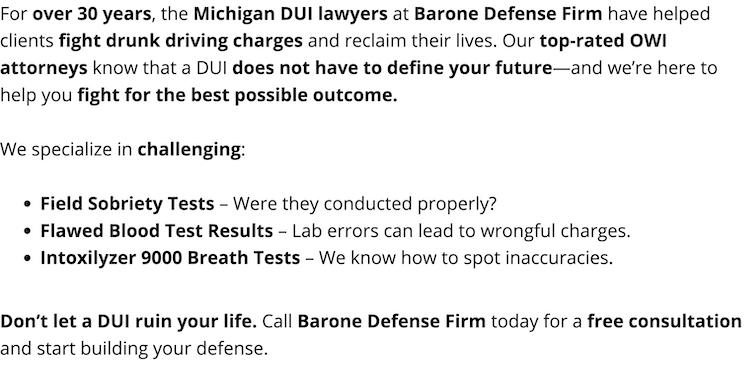EtG Testing for Alcohol by DUI Court
EtG (short for Ethyl Glucuronide) testing has become increasingly popular as a means of monitoring abstinence for people who are court-ordered to abstain from drinking alcohol. An EtG may be used by the court while you are on bond or following a drunk driving conviction, while you are on probation.
What Is EtG Testing?
EtG tests can detect alcohol use after the fact by looking for a biomarker in a urine sample you provide to the testing agency. The look back period for an EtG test is between approximately 24 hours and 80 hours.
From a Judge's perspective, this look-back period is an advantage over other commonly used alcohol testing methods that can only detect alcohol currently present in the body.
The EtG urine test may be able to look back over a longer period if there has been heavy drinking. However, EtG tests are very sensitive, and even very small amounts of alcohol can be detected. Alcohol abstinence is the best way to protect against a false positive EtG test.
The Science Behind How EtG Testing Works
When you drink a beverage containing alcohol (Ethyl Alcohol or Ethanol), the alcohol passes through the stomach and into the small intestine where it enters the bloodstream. The blood carries the alcohol to the liver where most of it is eliminated by an enzyme called “alcohol dehydrogenase” or EDH.
When Ethanol encounters EDH it is broken down into various chemicals and eliminated through the kidneys. During this process, the metabolism of Ethanol leaves behind certain “biomarkers,” or “clues” that may suggest that you have consumed ethanol. These biomarkers are what are detected when an EtG test is "positive."
To state this more scientifically, the EtG test uses an immunoassay to measure the presence of EtG in the urine. To perform this simple test, the laboratory mixes the urine with a chemical that will change colors if the EtG is present. The color change is then measured.
Rapid immunoassays tests are a lot like home pregnancy tests or even the ubiquitous rapid Covid home test.

According to Toxicologist Wayne Jones, about 95 percent of the ethanol entering the body undergoes metabolism by oxidative enzymes in the liver. Alternatively, about one-tenth of one percent is cleared by non-oxidative metabolism into ethyl glucuronide (EtG) and ethyl sulfate (EtS). These “conjugated metabolites” are excreted in urine. Jones, Biochemical and Physiological Research on the Disposition and Fate of Ethanol in the Body, Garriott’s Medicolegal Aspects of Alcohol, 5th Ed., pg. 54 (2008).
Etg Test Facts and Potential Causes of False Positive Results
The ultimate question, though, is whether a positive EtG test should ever be used as de facto evidence of alcohol consumption. Most assuredly, the answer is “no.”
If you are falsely accused of drinking because of a positive EtG test, you will want to hire a Michigan DUI lawyer knowledgeable about how these immunoassay tests work. See more about defending EtG bond and probation violations below.
Some common defenses to a bond or probation violation are as follows:
Endogenous Alcohol - at least one study indicating that the body can produce its own ethyl alcohol through a variety of chemical reactions. This is known as endogenous alcohol. Endogenous alcohol, even if it is present, will be of a very small percentage. See, Lester, Endogenous Alcohol: A Review, 22 Quarterly Journal of Studies of Alcohol 554 (1961).
Non-Specificity for Ethanol - In a 2006 article addressing the topic of EtG testing, the authors concluded that “care is needed with the interpretation (of EtG tests) because of the high sensitivity of the test and the risk of reaching a false accusation of alcohol consumption.
“Even casual exposure to ethanol-containing liquids, such as cosmetics, mouthwash, cough medication, or even in hand-rubs containing ethanol might lead to positive urinary EtG test.” See, Jones, supra.
Other studies in 2005 and 2007 found that “EtG is sensitive to enzymatic hydrolysis so, if biological samples are contaminated with certain bacteria (e.g., E. coli) which is common in urinary tract infections, this might lead to false-positive or negative results. Id.
Accordingly, False Positives can result from the following:
- Use of topical hand sanitizer
- Exposure to certain cleaning products
- Use of over-the-counter medications
- Ingestion of communal or sacramental wine
- Contamination with E. Coli bacteria
Defending a False Positive EtG Test Bond Violation or Probation Violation
Facing a false positive EtG test is a harrowing experience. However, as shown about, the science of EtG testing may support your claim. Some courts have found that positive tests are not always reliable and have dismissed the show cause violation. For more information about how these show cause hearings work, see our article entitled: Bond Violation Show Cause Hearings in Michigan.
It probably goes without saying, but you will not be able to defend against an allegation that you used alcohol unless you have denied using it. Sometimes people facing a positive EtG test will believe they have no other choice but to admit drinking.
If you have admitted drinking, it will be difficult to defend a positive EtG test. In this case we would focus on obtaining the best possible sentence for your violation. Hopefully this will mean avoiding jail time.
Be mindful that a successful defense against a positive EtG test will also require that there be no other evidence to corroborate the alleged drinking. If you have not admitted drinking and there is no other evidence to corroborate that you were, then you will have a defendable violation.
In such cases it is your attorney’s job to educate the court about the considerable amount of scientific and non-scientific literature that supports your contention. Properly presented, the court will undoubtedly agree that that the ostensibly positive EtG test is of dubious reliability.
On the other hand, a positive EtG test combined with weighty corroborative evidence, or even an admission to drinking, will be very difficult to defend.
In those cases where a defense is presented you should be mindful of the fact that the judge hearing your case may have certain kinds of implicit bias. They may be hearing the counterargument about EtG testing for the first time. Previously, the only “voice” the judge heard was that given by the lab contracted to perform the test, and this information may at best be incomplete.
For example, one of the largest players is Quest Diagnostics, Inc., and it may have an enormous financial incentive to persuade or cajole judges into believing that such tests are essentially bulletproof.
Finding a Top Michigan DUI Lawyer to Defend a False EtG Test
If you've been falsely accused of violating the conditions of your bond or probation due to a positive EtG test, then it is imperative that you find a top Michigan DUI lawyer to represent you.
The Michigan DUI lawyers at the Barone Defense Firm are standing by to assist you. Call today for your FRFEE no obligation case review.
 Barone Defense Firm Home
Barone Defense Firm Home
















